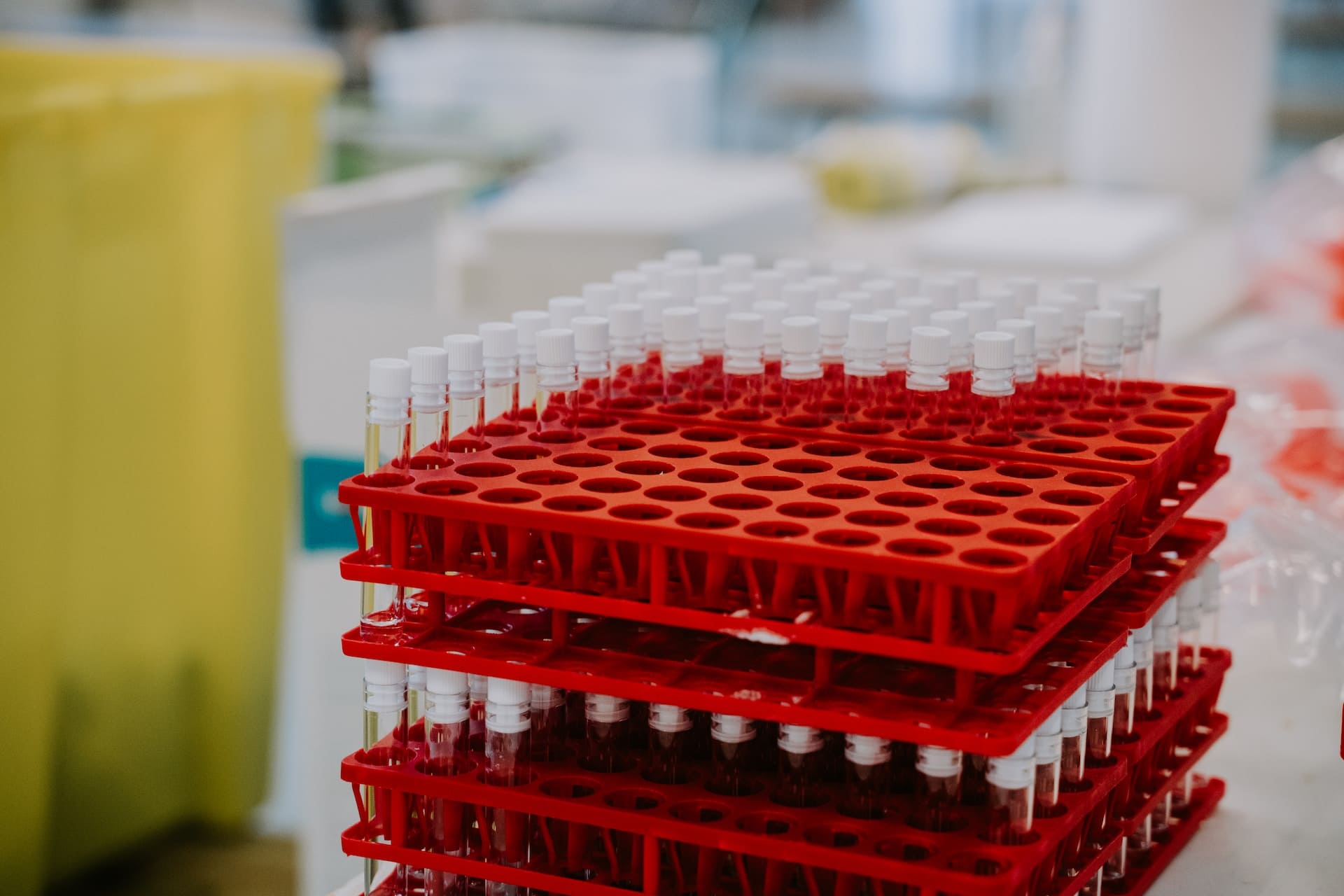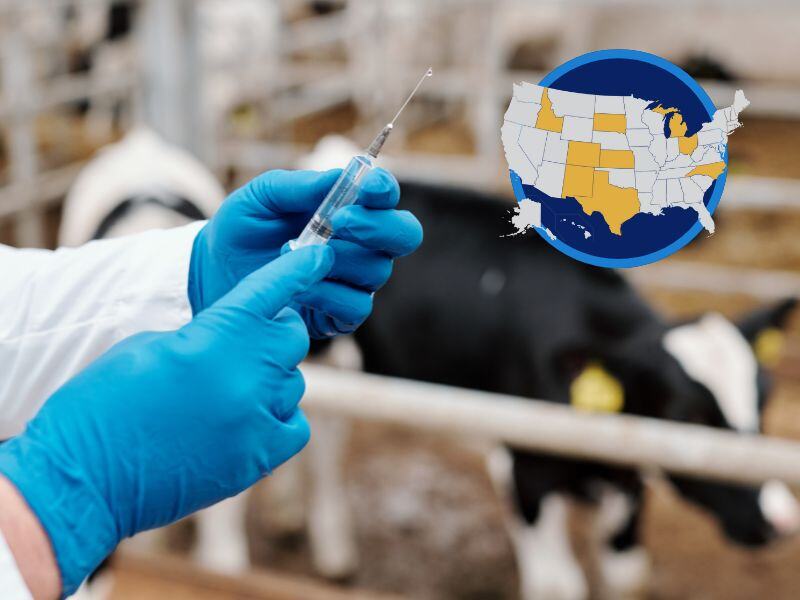Uncovering the Latest Trends in Vaccine Development and Technology: Advances in Biotechnology and Vaccines

Biotechnology and vaccines have revolutionized the field of medicine, offering innovative solutions to combat diseases and protect public health. Biotechnology, the use of living organisms and biological systems to develop products and technologies, has paved the way for ground-breaking advancements in vaccine development. Vaccines, a crucial aspect of preventive medicine, have played a vital role in eradicating diseases and improving global health outcomes.
The Vital Importance of Vaccine Safety and Efficacy
Vaccine safety and efficacy are the bedrock of public health interventions and the linchpin of immunization programs. These principles are not just desirable but are essential in ensuring the success of vaccination campaigns and, consequently, the protection of global public health. The journey of a vaccine from its conceptualization to approval is a meticulous and exhaustive process marked by rigorous testing and evaluation. At each stage of development, vaccine candidates are subjected to scrupulous scrutiny to guarantee their safety and effectiveness. This exhaustive evaluation process is meticulously designed to identify and address any potential risks while maximizing the positive impact of the vaccine.
Advancements in biotechnology have played an instrumental role in raising vaccine safety standards to unprecedented levels. The integration of biotechnological techniques has empowered scientists to fine-tune vaccine formulations, significantly reducing adverse effects while amplifying their effectiveness. One groundbreaking innovation is the utilization of virus-like particles (VLPs). VLPs mimic the structure of viruses without containing genetic material, allowing to produce vaccines that are not only safer but also highly potent.
Advancements in Biopharmaceuticals
Innovations in biopharmaceuticals have empowered scientists with a formidable arsenal of tools and techniques. One such breakthrough is the integration of recombinant DNA technology, a process that involves the precise insertion of specific genes into host organisms, such as bacteria or yeast. This genetic modification allows for the production of vaccine antigens with an unprecedented level of precision, purity, and consistency. The result is a vaccine that not only meets rigorous safety standards but also demonstrates remarkable efficacy, all while being produced on a large scale. This technological advancement has ushered in an era where the development of vaccines is not only faster but also characterized by a level of precision.
Viral vectors represent another extraordinary innovation within the realm of biopharmaceuticals. These modified viruses are ingeniously employed to deliver vaccine antigens directly into the body, effectively acting as vehicles that trigger a potent immune response. This groundbreaking approach has proven particularly effective in developing vaccines against diseases that have proven elusive through conventional methods. By leveraging viral vectors, scientists have unlocked new possibilities in vaccine development, offering hope for diseases previously considered untreatable.
However, one of the most groundbreaking leaps in biopharmaceuticals has been the recent advent of mRNA technology. From this new technology emerged a new class of vaccines, including the ones employed in the global fight against COVID-19. mRNA vaccines harness the body's own cellular machinery to produce a viral protein, training the immune system to recognize and combat the virus. The agility and versatility of mRNA technology have been on full display during the COVID-19 pandemic, where vaccine development timelines were significantly compressed without compromising safety or efficacy.
Latest Trends in Vaccine Development
One of the latest frontiers in vaccine development is the utilization of nanotechnology, a field that leverages the power of incredibly small particles known as nanoparticles. These minuscule wonders are engineered with precision to carry vaccine antigens, functioning as targeted delivery vehicles that transport them directly to immune cells. This approach yields a robust and finely tuned immune response, elevating the effectiveness of vaccines to unprecedented levels. The potential of nanotechnology in vaccine development is immense, promising not only enhanced efficacy but also the prospect of developing vaccines that are more potent and versatile than ever before.
Furthermore, epitope-focused vaccines have emerged as a focal point of research and development in the quest to optimize vaccine performance. Epitopes represent specific regions of antigens that interact with immune cells, acting as the trigger for immune responses. By homing in on these critical epitopes, researchers can meticulously design vaccines that precisely target desired immune responses. This level of precision holds the promise of crafting vaccines that are not only more effective in combatting diseases but also safer, as they minimize the likelihood of off-target responses.
Novel Vaccines and Their Potential Impact
Novel vaccines are emerging as game-changers in the field of biotechnology. These vaccines utilize innovative approaches, such as DNA vaccines, viral-like particle vaccines, and plant-based vaccines. DNA vaccines involve the direct injection of DNA encoding vaccine antigens into the body, stimulating an immune response. Viral-like particle vaccines mimic the structure of viruses without containing genetic material, allowing for the production of safer vaccines. Plant-based vaccines utilize genetically modified plants to produce vaccine antigens, offering a cost-effective and scalable approach. The potential impact of these novel vaccines is immense, as they have the ability to address diseases that were previously challenging to target. They offer new avenues for vaccine development and hold promise for the prevention and control of a wide range of infectious diseases.
Vaccine Technology and Innovation
One of the most pivotal technological leaps in recent years is the integration of artificial intelligence (AI) into vaccine design. AI algorithms, fuelled by their ability to process vast datasets with unparalleled speed and accuracy, have emerged as invaluable assets in the quest for novel vaccines. These algorithms can dissect intricate data, predict antigen structures, and identify potential vaccine candidates with remarkable precision. This accelerated vaccine development process not only expedites the journey from concept to clinical trials but also widens the spectrum of potential vaccine targets. The use of AI in vaccine design is a testament to the power of technology in optimizing vaccine development, offering new horizons for the creation of vaccines against a myriad of diseases.
Moreover, the development of innovative vaccine delivery systems has ushered in a revolution in vaccine administration. Microneedle patches and needle-free devices represent pioneering solutions that are transforming the way vaccines are delivered. These technologies not only eliminate the pain associated with traditional needle injections but also offer a more convenient and accessible means of vaccination. The result is a higher vaccine uptake and greater accessibility, particularly in hard-to-reach populations and underserved regions. The integration of these novel delivery systems into vaccine administration exemplifies the profound impact that technological innovation can have on enhancing the reach and effectiveness of immunization efforts.
Challenges in Vaccine Development
Despite the remarkable advancements in biotechnology and vaccines, several challenges persist in the field of vaccine development. One of the major challenges is the rapid evolution of pathogens. Viruses and bacteria can undergo genetic mutations, leading to the emergence of new strains that may evade existing vaccines. This necessitates the continuous monitoring of circulating pathogens and the development of updated vaccines. Another challenge lies in the global distribution and equitable access to vaccines. Ensuring that vaccines reach underserved populations and developing countries remains a pressing concern. Furthermore, vaccine hesitancy and misinformation pose significant hurdles in achieving widespread vaccine coverage. Addressing these challenges requires collaborative efforts between scientists, policymakers, and the public to ensure the effective prevention and control of infectious diseases.
Examples of Vaccines and their Impact
In the relentless battle for global public health, biotechnology and vaccines have emerged as stalwart champions. The impact of their prowess is evident in numerous contemporary real-world examples, showcasing their transformative influence in safeguarding populations against deadly diseases.
- COVID-19 Vaccines: The rapid development and deployment of COVID-19 vaccines represent one of the most recent and dramatic illustrations of biotechnology's agility and vaccines' lifesaving potential. Scientists, leveraging cutting-edge mRNA technology and viral vector platforms, engineered highly effective vaccines in record time. These vaccines have become indispensable tools in curbing the spread of the virus and have laid the foundation for pandemic recovery efforts worldwide.
- Human Papillomavirus (HPV) Vaccine: Building upon the success of the earlier HPV vaccine, modern iterations have continued to make significant strides in the prevention of cervical cancer. The HPV vaccine not only exemplifies the potential of biotechnology but also underscores the critical role of vaccines in reducing the incidence of cancer through immunization. As more people receive this vaccine, we move closer to a world where cervical cancer becomes a rarity rather than a prevalent threat.
- Malaria Vaccines: Ongoing research and development efforts in the field of malaria vaccines offer hope for regions heavily burdened by this deadly disease. Biotechnology-driven innovations in vaccine design have produced promising candidates that have entered advanced clinical trials. Should these vaccines prove successful, they could potentially save hundreds of thousands of lives annually and represent a monumental victory in the fight against malaria.
- Ebola Vaccines: The swift development of Ebola vaccines during outbreaks in West Africa showcased the adaptability and effectiveness of vaccine technology in the face of emerging infectious diseases. These vaccines not only helped contain outbreaks but also contributed to the global effort to prevent the spread of this deadly virus.
- Pneumococcal Vaccines: Biotechnology has played a pivotal role in the development of pneumococcal vaccines, which protect against a bacterium responsible for a range of serious infections, including pneumonia and meningitis. These vaccines have significantly reduced the burden of these diseases globally.
Future Prospects for Biotechnology and Vaccines
The future of biotechnology and vaccines holds exciting prospects for global health. The advancements in gene editing technologies, such as CRISPR-Cas9, have the potential to revolutionize vaccine development. CRISPR-Cas9 allows for precise modifications of genetic material, opening doors to develop vaccines against previously challenging diseases. Furthermore, the integration of big data analytics and genomics in vaccine research holds promise for personalized vaccines tailored to individual immune profiles. This could lead to highly effective vaccines with minimal adverse effects. The future also brings opportunities for the development of vaccines against non-communicable diseases, such as cancer. Researchers are exploring cancer vaccines that stimulate the immune system to target and destroy cancer cells. These future prospects highlight the transformative potential of biotechnology and vaccines in improving global health outcomes.
Conclusion
Biotechnology and vaccines have propelled the field of medicine forward, offering innovative solutions to combat diseases and protect public health. The advancements in biopharmaceuticals, vaccine technology, and novel vaccines have revolutionized vaccine development, enhancing safety, efficacy, and accessibility. Despite the challenges, the prospects for biotechnology and vaccines are bright, with opportunities to address emerging diseases and develop personalized vaccines. As we continue to unveil the latest trends in vaccine development and technology, it is crucial to recognize the transformative potential of biotechnology and vaccines in improving global health outcomes. Vaccines are a cornerstone of preventive medicine, and their continued development and innovation will undoubtedly shape a healthier future for humanity.








